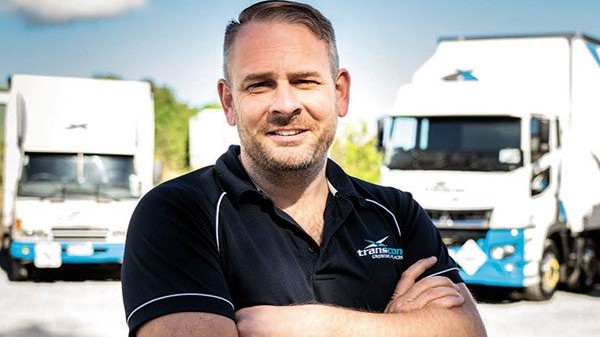Maybe we all need to throw a few more stones?

New Zealanders are good at heeding the saying, ‘People who live in glass houses shouldn’t throw stones’. But are we taking reticence too far?
Most Kiwis are happy to contribute to a bit of government, council, or industry bashing while pumping diesel at the local truck stop. Yet when it comes to making a stand, those same civic opinions aren’t quite as forthcoming.
The governance and representation of our industry is a great example. There appears to be a strong belief and expectation from many operators that it’s the role of a small group to forego the demands of their businesses and instead champion the needs and wants of the industry.
Only a very small bunch of operators are prepared to put their hats in the ring and ‘take one for the team’, and some of them have been doing so for north of 30 years.
I sense that if we compiled a list of the industry’s key contributors at a governance level during the past 30 years, she’d be a pretty short document. No slight is intended to the individuals who’ve stepped forward; quite the opposite. If anything, it’s an acknowledgement of the gratitude we owe the immense work of a relatively compact collective. But if the industry is to represent us all, isn’t it time we played our part in the heavy lifting?
Two government submissions have recently been circulating regarding the draft fair pay agreements legislation and the RUC reforms. In each case, there’s been solid communication from both industry groups concerning policy overviews and actions. And yet, the cupboard’s been somewhat bare when it comes to members taking a relatively simple step of submitting an opinion via a simple online form. Perhaps it turns out we’re not actually that fazed about the landscape changing around us without our input?
In the case of the fair pay agreements submission, I commend Transporting New Zealand’s proactive and turn-key approach to getting engagement from its membership in the hope of dramatically bolstering the voices heard from the road transport sector. But surely it shouldn’t take spoon-feeding on a matter that has such significant ramifications for all of us as operators and employers? If ever there were a time to put forward an opinion on this legislation – for or against – it’s now.
There are two other big issues affecting operating costs and our work environment that we again seem happy to gripe about to each other, yet not so compelled to jump atop a local soapbox and demand answers; fuel pricing and road maintenance – and quality and timely delivery thereof.
In the case of fuel, I fully accept the geopolitical levers that are currently wrenching this from all sides, combined with the recent infrastructure reconfiguration at Marsden Point and the change to our supply model. But are we truly making any/enough noise about a cost element that has increased north of 100% for many in the past 12 months? Putting aside our own cost containment and FAF mechanisms, there’s surely a customer and national competitiveness element we should all care dearly about preserving and maintaining?
Looking at roading, I continue to ask at what point will we say enough is enough? We’re all spending our days plying our trade on a network over-run with fundamental deficiencies, where the humble road cone seems to have assumed the role of safety warden. How many of us have truly taken the bull by the horns and put pen to paper, or keystrokes to Outlook, and documented our disdain for the environment we’re all so handsomely contributing to via our local MP, council, or roading authority?
We must all ask ourselves that if not now, when will we choose to stand up for our opinions and views and the value that may come from adding perspective, weight, and volume for the industry’s betterment? I’m pretty sure we’re not living in a glass house, so maybe it’s time to grab a few stones? (Or perhaps pebbles for a start?)


